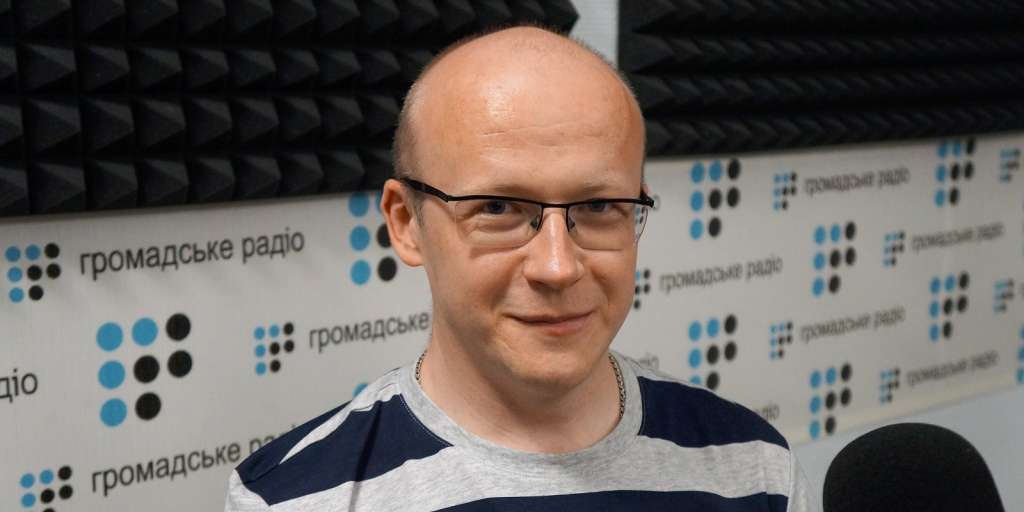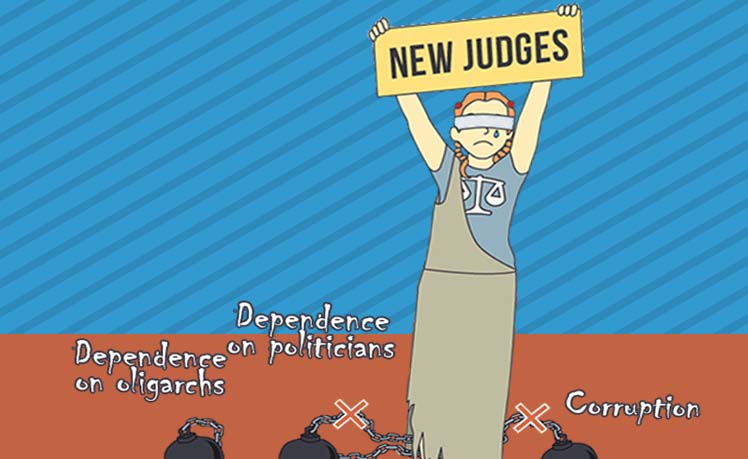On November 11, Ukrainian President Petro Poroshenko made the final step to appoint 113 judges of Ukraine’s key judicial institution – the Supreme Court. This was a part of the judicial reform which Poroshenko initiated more than a year ago. He again praised the transparent competition to the court and said that it was unique in Ukraine's history. This happened against the background of a totally discontented civil society. After the competition took place, activists had trumpeted their alarm during three months in a row – every fourth candidate to the Court did not fit the criteria of integrity and professional ethics.
The competition had several stages – a written and practical test, and a background check of the candidates by different bodies. The candidates were selected by the High Qualification Commission of Judges (HQCJ), a selection committee consisting of judges. The Public Integrity Council, a group formed from representatives of civil society, assisted the HQCJ in assessing the professional ethics and integrity of judges. And the High Council of Justice (HCJ) is the final instance which approved or disapproved the candidates suggested by the HQCJ and gave the list for the president to appoint.
Midway through the process, the Public Integrity Council pointed out crucial violations committed during the selection process. Initially, the HQCJ recommended 120 candidates to the High Council of Justice HCJ. The Public Integrity Council announced that 30 candidates did not fit the criteria of professional ethics of a judge. They insisted these candidates should not be appointed and stated that the Supreme Court can function with only 65, but those who would have an impeccable background. This seemed a better alternative than appointing corrupted people ready to make political decisions for life tenure. Also, the Public Integrity Council questioned the transparency of the competition itself. However, their arguments were not taken into consideration.
“The Public Integrity Council demands to stop misleading society in public speeches of the President in regards that during the competition to the Supreme Court the position of society was taken into account as much as possible. The Public Integrity Council totally disagrees with this statement and considers that we were used to legitimize the needed result in the eyes of society and the international community,” the PIC said in an official statement.
The representatives of the body expressed their deep concern because among the winners of the competition there are judges who banned peaceful assemblies during the Euromaidan Revolution, grossly violated fundamental human rights as recorded by the European Court of Human Rights, flouted decisions of the same court, submitted filled doubtful information in the declaration of integrity, could not explain their fortunes which were obviously disproportionate to their incomes, made politically motivated decisions, helped the judges who helped the government clamp down on Euromaidan activists evade responsibility etc.
The activists also pointed out the secrecy of the ceremony of appointing the new judges, which goes to show that the organizers were afraid of the reaction of society regarding this event:
“So they realize how little society trusts the competition,” said the activists adding that that society still has not received an explanation as to why the PIC’s opinions on the candidates' non-compliance with the criteria of integrity were rejected:
“So we consider the result of the new competition to the Supreme Court unfair and as one which does not correspond to the expectations of society about the refinement and renewal of the judiciary. We would like to draw your attention to the fact that, with the reform starting off in such a way, and with such ‘standards of integrity’ established by the High Qualifications Commission of Judges of Ukraine and the High Council of Justice, there is no sense in any further qualifying assessments of acting judges, as the dismissal of a judge due to non-compliance with the criterion of integrity will require a court verdict.”
Still, the activists announced they continue the fight for the implementation of the judiciary reform and are ready to suggest changes which will not allow similar results to happen in the future and will give the opportunity to regain the trust of society.
Read also:
- Commission recommends tainted judges to Ukraine’s new Supreme court, ignoring disapproval of society
- Will Ukraine finally have a new judiciary? Explained by the Public Integrity Council
- Activists: with failed new Supreme Court, we can “forget about democracy and justice” in Ukraine
- EU Delegation, civic society insist Ukraine show the door to dishonest Supreme Court candidates
- Judiciary reform under threat because of the old new Supreme Court
- Here’s a hit parade of judges who might return the worst days of Ukrainian justice
- “The evil ethos of impunity and corporatism has been broken” – expert about Ukraine’s judicial reform
- 90% of Ukrainian judges who prosecuted Euromaidan activists still in office – lustration committee
- “Ukraine’s former judicial system crumbles” – lawyer who made it to the new Supreme Court
- “Ukraine finally to have independent judiciary.” Interview with Head of Qualification Commission of Judges





